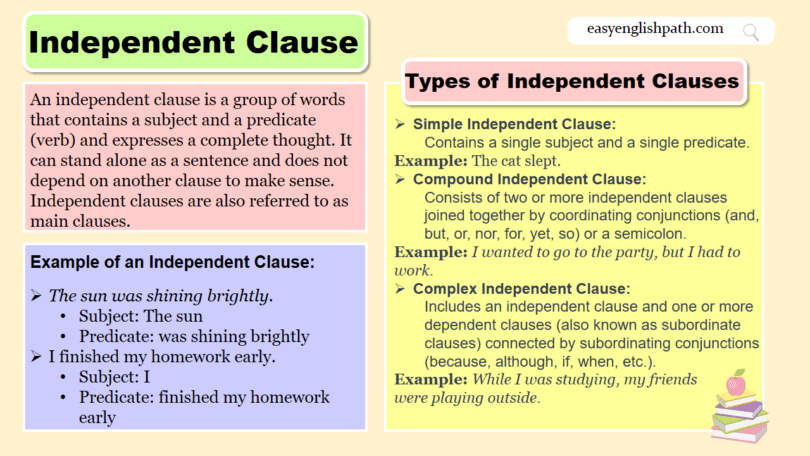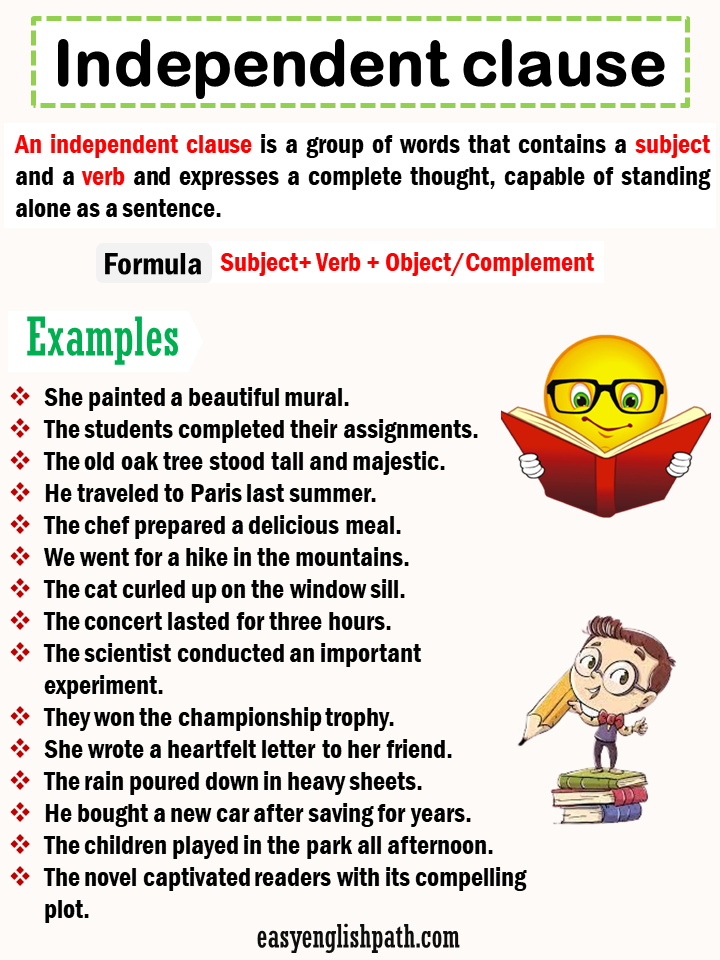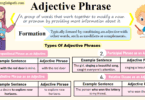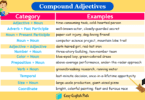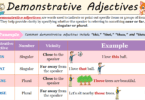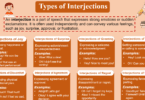What is an Independent Clause?
An independent clause is a group of words that has a subject and a verb and can stand alone as a complete sentence. It expresses a complete thought.
- She walked to the park.
- He likes to play basketball.
- The dog barked loudly.
- They went to the beach.
- I enjoy reading books.
Types of independent Clause:
There are three main types:
- Simple Independent Clause
- Compound Independent Clause
- Complex Independent Clause
Simple Independent Clause:
A simple Independent Clause is a group of words that has a subject and a verb and can stand alone as a complete sentence. It is used to expresses a complete thought.
Examples:
- She reads books in the morning.
- We play games in the ground.
- He runs fast in the ground.
- It rains often in the city.

